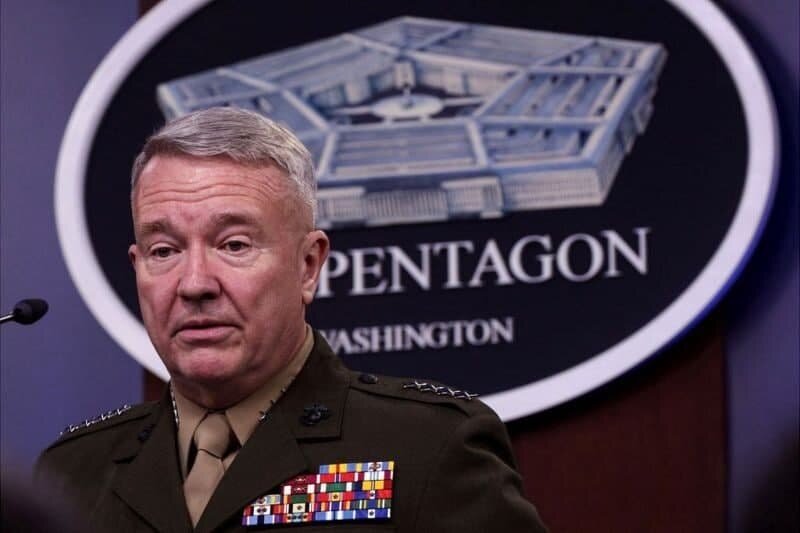Iran has not made any irreversible nuclear moves: U.S. general

TEHRAN - A top U.S. general said on Thursday that Iran had not done anything in its nuclear program that was irreversible, Reuters reported.
"They've done nothing that is irreversible," Marine General Kenneth McKenzie, head of the U.S. Central Command, told reporters.
Since May 2019, one year after the Trump administration quit the 2015 nuclear deal, Iran has removed bans on its nuclear activities in response to the U.S. abrogation of the agreement and imposition of primary and secondary sanctions.
In late 2020, the Iranian parliament approved legislation obliging the Atomic Energy Organization of Iran (AEOI) to speed up nuclear activities as the United States is refusing to lift illegal sanctions on Iran. For example, it asked the AEOI to enrich uranium to the purity of 20 percent and install advanced centrifuges and suspend the voluntary Additional Protocol to the NPT.
When voting for the legislation, the Iranian parliament gave the U.S. side some time to remove sanctions. However, it said if it did not do so Iran would take such steps.
Also, in response to the sabotage operation at the Natanz nuclear facility on April 11, for which Israel’s Mossad intelligence service is the prime suspect, Iran decided to enrich uranium to 60 percent and replace damaged IR1 centrifuges with advanced ones.
Despite all these moves, Iran has been insisting that if the U.S. lifts illegal sanction, it will reverse its remedial measures.
Hopes are rising for a possible revival of the 2015 nuclear agreement as the new Biden administration has expressed willingness to return to the multilateral agreement, officially known as the Joint Comprehensive Plan of Action (JCPOA).
Iran and the remaining parties to the JCPOA – the four permanent members of the UN Security Council – plus Germany have been holding talks in Vienna to resuscitate the agreement. The sides plan to meet in Vienna next week.
On Wednesday, a senior State Department official told reporters that there had some progress during the second round of indirect talks with Iran. “There are still disagreements, in some cases pretty important ones,” the official said, according to Al Arabiya.
Asked about claims by Israel that the U.S. was not fully transparent about revitalizing the nuclear deal, the official pushed back and said this was not true.
In a report on April 18, AXIOS reported Israeli military intelligence and senior officials in the Mossad briefed a meeting of the security cabinet that talks in Vienna will lead to the U.S. returning to the JCPOA, two officials who attended the meeting said.
The Israeli regime is pressing the Biden administration not to take the sanctions pressure off Iran.
The two intelligence agencies gave similar assessments on where the Vienna talks stand, AXIOS said.
“We are not very optimistic to say the least," a senior Israeli official who attended the meeting said. "We will not be surprised if within weeks the U.S. and other world powers sign a deal with Iran.”
National Security Advisor Jake Sullivan has told "Fox News Sunday" that the Vienna talks were "constructive" and that there is a real effort to get back to mutual compliance of the 2015 nuclear deal.
In the coming two weeks the Israeli national security adviser Meir Ben Shabbatt, IDF chief of staff Aviv Kochavi, head of Israeli military intelligence Tamir Hayman and Mossad director Yossi Cohen will visit Washington for talks with their counterparts on Iran, officials told AXIOS.
PA/PA
Leave a Comment